When you click on a sponsoring school or program advertised on our site, or fill out a form to request information from a sponsoring school, we may earn a commission. View our advertising disclosure for more details.
Biochemistry, also known as biological chemistry, is the study of chemical processes at all levels of organic life. It has three main subfields: molecular genetics, protein science, and metabolism. The focus of this field of study is how molecules form the basis of the material building blocks from which we are built. Biochemistry is also very closely related to molecular biology, the study of the molecular mechanisms of our biology.
Biochemistry deals with the functions and structures of biological components such as nucleic acids, carbohydrates, proteins, and lipids. Its most common applications are in nutrition, medicine, and agriculture. In medicine, biochemists research the origins of a wide variety of diseases with hope for the discovery of biochemical cures. In agriculture, biochemists study subjects such as how to improve fertilizers or foster a healthier environment for soil. Biochemists also lead the charge in studying methods of crop cultivation, storage, and the sustainable control of pests. And in nutrition, they study how to maintain health and wellness and how to improve nutritional deficiencies.
Whether you pursue a BS, MS, or PhD, a degree in biochemistry from one of the following three universities can help get your foot in the door for an exciting and ever-evolving career.
Read on to learn more about innovative biochemistry faculty members and the institutions with which they are affiliated.
University of California, San Diego – Department of Chemistry and Biochemistry
The University of California, San Diego is a public research university, which was founded in 1960 near the renowned Scripps Institution of Oceanography. It offers over 200 undergraduate and graduate programs.
UC San Diego is organized into six undergraduate residential colleges, five academic divisions, and five graduate and professional schools. In its commitment to public health, UCSD operates UC San Diego Health, which is the area’s only teaching, academic health system. Additionally, UCSD Health cares for patients, educates future healthcare professionals, and participates in medical research and development. The school’s Department of Chemistry and Biochemistry offers a BS in biochemistry with a view toward research and technological application.
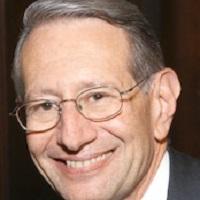
Dr. Edward Dennis is a professor of biochemistry at the University of California, San Diego. His research and teaching interests include biochemistry, signal transduction in macrophages, lipid maps, prostaglandin regulation, mass specs of lipids and proteins, and phospholipase A2. Although his primary research area is that of biochemistry, he conducts interdisciplinary studies in cellular biochemistry.
Currently, Dr. Dennis is chair of the Department of Chemistry and Biochemistry. He holds a BA from Yale and MS and PhD degrees from Harvard and has been a Guggenheim Fellow.
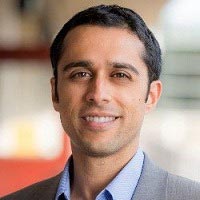
Dr. Neal Devaraj is a professor of chemical biology at UCSD, where he leads studies on biomimetic chemistry, molecular imaging, and chemical biology. His other research interests include the synthesis of artificial membranes, tools for detecting and labeling RNA, and tetrazine bioorthogonal reactions. The Devaraj Lab at UCSD focuses on the design of chemoselective reactions for addressing problems in bottom-up synthetic biology and molecular imaging.
Dr. Devaraj works with UCSD CREATE, the Center for Research on Educational Equity, Assessment, and Teaching Excellence, with the goal of improving the STEM pipeline for ethnic minorities in his area. He holds a PhD in chemistry from Stanford University and a dual BS in chemistry and biology from MIT.
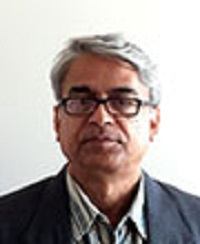
Dr. Gourisankar Ghosh is a professor of biochemistry and biophysics at the University of California, San Diego, where he studies transcription, signaling, pre-mRNA splicing, mRNA transport, protein-protein, protein-DNA and protein-RNA interactions. He has interdisciplinary interests in macromolecular structure, biophysics, and cellular biochemistry. Using hi-res x-rays, Dr. Ghosh and his team analyze proteins and their complexes, which are then tested through a wide variety of biochemical experiments to increase our functional understanding.
Dr. Ghosh holds PhD and MS degrees from Albert Einstein University, an MS from Calcutta University, and a BS from St. Xavier’s college.
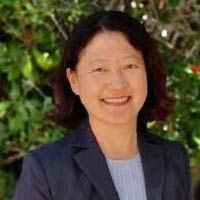
Dr. Judy Kim is a professor of biochemistry at UCSD, where she teaches and researches the fields of biophysical chemistry utilizing spectroscopic studies of membrane protein folding and dynamics. She was formerly a postdoctoral fellow at both the California Institute of Technology and the University of California at Berkeley. She also studies physical and analytical chemistry. She holds a Ph.D. from UC Berkeley and M.S. and B.S. degrees from the Massachusetts Institute of Technology.

Dr. Jerry Yang is a professor of biochemistry at the University of California, San Diego, where he teaches and studies bioorganic chemistry, molecular self-assembly, molecular synthesis, materials chemistry, and bionanotechnology. He heads up an interdisciplinary research team using organic chemical synthesis to design structures with very specific biochemical functions, for both medical and consumer applications. His lab is also working on the biochemical creation of molecules to help improve memory and learning. A key component of his research is the study of metastasis in cancer and devising biochemical solutions that will help halt the spread of cancers in human tissue.
He holds a PhD from Columbia University and a BS from UC Berkeley.
Rutgers University, New Brunswick – Department of Molecular Biology and Biochemistry
Rutgers University, New Brunswick is one of the campuses of New Jersey’s premiere public research university. The institution comprises 19 undergraduate, graduate, and professional schools. It’s home to the world-renowned Rutgers Business School, responsible for many interesting developments in the areas of business and economics.
The Rutgers Department of Molecular Biology and Biochemistry hosts an interdisciplinary undergraduate degree in biochemistry or molecular biology with a variety of specializations available to students with a penchant for some of biochemistry’s subdisciplines, such as bioorganic chemistry and molecular genetics.
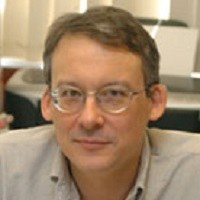
Dr. Steven Brill is a professor of biochemistry in the Department of Molecular Biology and Biochemistry at Rutgers University, New Brunswick. He also has an appointment at the Rutgers Cancer Institute of New Jersey. He has been teaching at Rutgers for nearly two decades and has led many important studies. He studies the biochemistry and chemical genetics of DNA replication, DNA repair, DNA helicase, genome stability, and protein purification—all using yeast cultures.
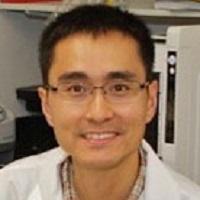
Dr. Sam Gu is an associate professor of biochemistry and molecular bioscience at Rutgers University, New Brunswick, where he studies and teaches the biochemistry of RNA-directed chromatin modification and epigenetic memory. He runs the Gu lab, which primarily uses nematodes to test their theories about RNA-chromatin interaction. His focus on gene regulation aims to better understand the mechanisms that lead to effects on genes that happen multigenerationally.
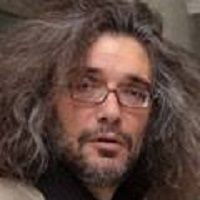
Dr. Konstantin Severinov is a professor of molecular biology and biochemistry at Rutgers University, New Brunswick. He is also a principal investigator for the Waksman Institute and leads numerous research laboratories in the Russian Academy of Sciences Institutes of Molecular Genetics and Gene Biology in Moscow. Notably, he is a senior Fulbright scholar and a fellow of the American Academy of Microbiology. His research and teaching interests include genetic and biochemical analysis of RNA polymerases from E. coli and yeast and the site-directed modification of proteins for use in studies of genetic biochemistry. Dr. Severinov also holds six international patents and has authored or co-authored more than 170 research papers.
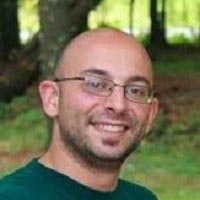
Dr. Mikel Zaratiegui is an associate professor of biochemistry in the Department of Molecular Biology and Biochemistry at Rutgers University, New Brunswick. He studies and researches the relationship between DNA and chromatin, chromatin dynamics, heterochromatin, RNA interference, genome integrity, and fission yeast genetics. His main project is the study of RNA interference in the production of heterochromatin. He obtained his PhD in biochemistry from the University of Navarra.
University of Texas at Austin, Institute for Cellular and Molecular Biology
The University of Texas at Austin was founded in 1883 as the state’s flagship institution in the respected University of Texas System. It is considered by many to be a Public Ivy, a school open to the public with a rich education on par with private institutions. Across all disciplines, its faculty includes recipients of the Pulitzer, Nobel, Wolf, and Turing Awards, as well as the National Medal of Science.
The university is well-known for its contributions to chemistry, biology, and business. UT Austin’s Institute for Cellular and Molecular Biology has a BS program in biochemistry, which boasts a distinguished faculty made up of professors who teach both undergraduate and graduate courses.

Dr. Dean Appling is a professor of molecular biosciences and associate dean of the college of natural sciences at the University of Texas at Austin. He researches and teaches the regulation and organization of metabolic pathways in eukaryotes, biochemical interactions, the fundamentals of biochemistry, and cellular and molecular biosciences. Dr. Appling also is the Lester J. Reed professor in biochemistry, and his scholarly interests include how one-carbon metabolism is organized in mitochondria and how these organelles are central players in many human diseases.
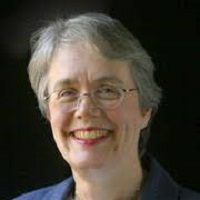
Dr. Karen Browning is a professor of molecular biosciences at the University of Texas at Austin, where she studies, researches, and teaches about eukaryotic protein synthesis, biochemistry, RNA, and the initiation of protein synthesis. She focuses primarily on how proteins synthesize in higher plants and looks into the features of messenger RNAs that cause more effective gene translation. Her team uses genetic knockouts, gene silencing, and DNA arrays to perform the majority of their research.
Dr. Browning holds a BS from the University of Texas, Austin and a PhD from the University of Illinois. She completed her postdoctoral work at MIT.

Dr. Jon Huibregtse is a professor of molecular biosciences and the director of the college of natural sciences at the University of Texas at Austin. Dr. Huibregtse is currently working on a project involving the biochemical mechanisms and biological functions of ubiquitin and ubiquitin-like proteins in mammals and yeast cultures.
The Huibregtse lab primarily studies the biochemistry of the ubiquitin proteolysis system, trying to determine how and why proteins break down in eukaryotic cells. They also study the human papillomavirus and how it compromises the normal life cycle of a cell. His team has notably identified a new class of ubiquitin ligases, known as HECT ubiquitin ligases. He received his BS and his PhD in biological chemistry from the University of Michigan.
Methodology
Schools that meet our criteria for designation as one with an exceptional biochemistry program must:
- Offer comprehensive program(s) centered around biochemistry or biological chemistry that prioritize undergraduate learning
- Assign cutting-edge curriculum that integrates research from contemporary scholarship
- Boast a demonstrated history of student satisfaction in academics, facilities, and curricula
- Retain a staff of credentialed and peer-reviewed biochemists and biochemistry researchers and scholars.
To be marked for inclusion on our list of top-rated biochemistry professors and faculty, we look at the following criteria:
- University Affiliation: Biochemistry faculty on this list must currently be employed in instruction or research at an accredited university or college.
- Professional Commitment: Together with whatever research, teaching, or leadership obligations these biochemistry professors might have, some have risen to positions like faculty dean or program director or have taken advisory positions on the boards of public companies.
- Peer Recognition: In their dedication to the field of biochemistry or biological chemistry, certain faculty who have set themselves apart may have received special recognition for their published work, grants, or allotments for research or funding, or excellence in teaching awards.
- Publication: In addition to having been featured extensively in peer-reviewed journals, many of the professionals on our list have publication credits in quarterly, personal, and mainstream literature, or have been featured in various media outlets.
